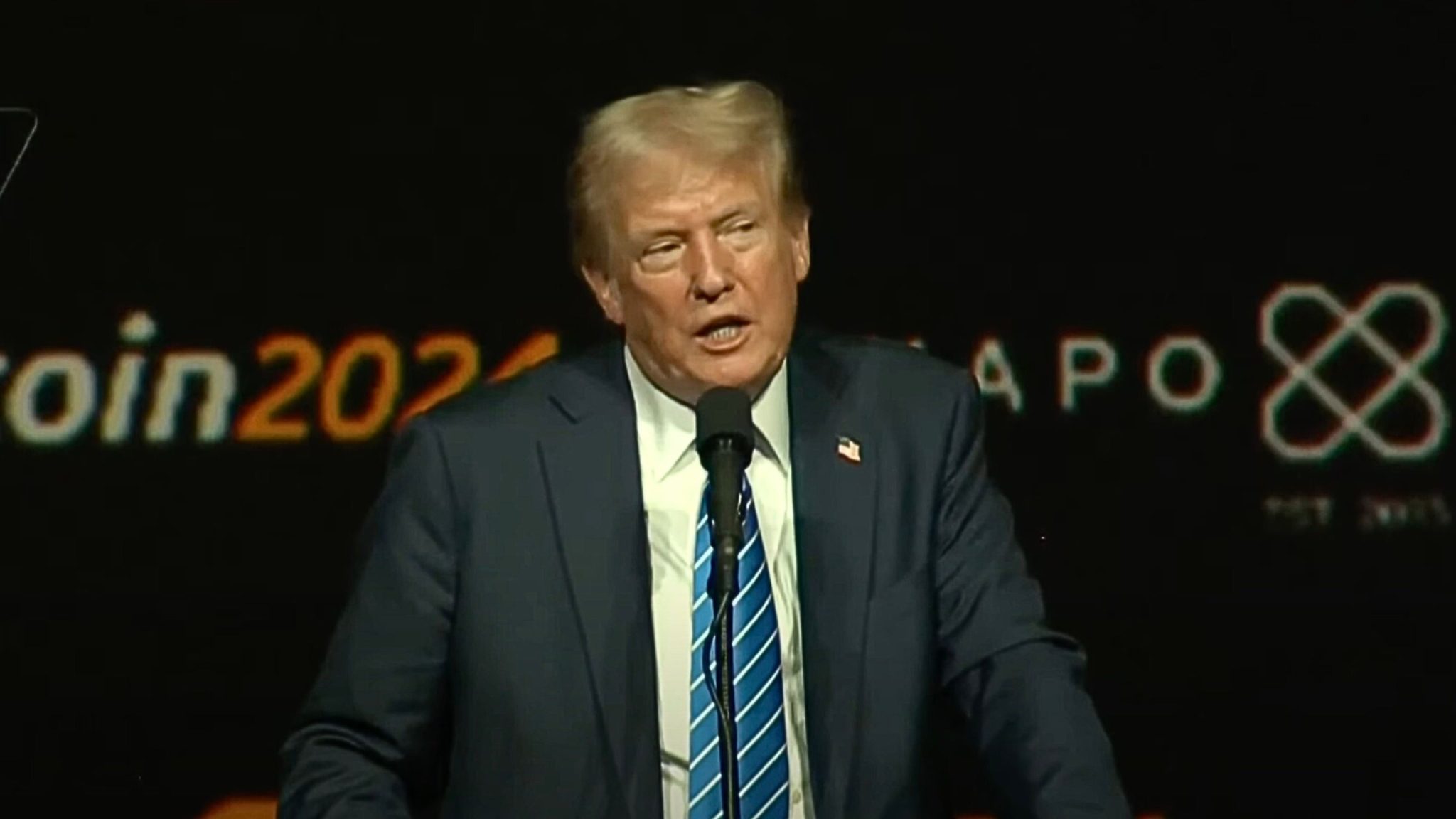by Ken Macon, Reclaim The Net:

President Donald Trump has been quite vocal about central bank digital currencies (CBDCs) lately, and today was no exception. In his speech at the Bitcoin 2024 conference in Nashville, he made his stance crystal clear. He said, “There will never be a CBDC while I am president.”
This statement echoes his previous comments on the matter, where he has consistently expressed strong opposition to the idea of a CBDC. He believes that such a currency would give the government too much control over people’s money and could potentially lead to financial tyranny.
TRUTH LIVES on at https://sgtreport.tv/
Trump’s views on CBDCs seem to be part of a broader narrative that he’s building around protecting individual freedoms and liberties. It’s a message that resonates with many in the cryptocurrency community, who see digital currencies as a way to decentralize power and reduce government control.
Trump has previously called CBDCs a “dangerous threat to freedom.”
Trump’s firm stance underscores the escalating discussions surrounding CBDCs, a significant matter among global governmental bodies. To date, only a few countries have officially adopted such currencies. However, the digital currency landscape continues to evolve, with China advancing the implementation of its digital yuan, India progressing towards a digital rupee, and the European Central Bank initiating a preparatory phase for a potential digital euro.
CBDCs represent a significant evolution in the architecture of money. These digital forms of fiat currency, issued and regulated by a country’s central bank, promise enhanced efficiency in transactions and greater financial inclusion. However, they also pose potential risks to civil liberties that merit careful consideration. Here are some of the primary concerns:
1. Privacy
CBDCs could fundamentally alter the landscape of financial privacy. Traditional cash transactions allow for anonymity. With CBDCs, even small transactions might be traceable and recordable by the central bank. This could lead to a scenario where governments have access to detailed records of every individual’s financial life, raising significant privacy concerns unless robust safeguards are implemented.
2. Surveillance
The transition to a fully digital currency could potentially give governments unprecedented capabilities to monitor and surveil citizen behaviors. In regimes with weaker protections for civil liberties, this could be exploited to track political dissent or suppress opposition. The potential for surveillance not only impacts privacy but also freedom of expression and association.



